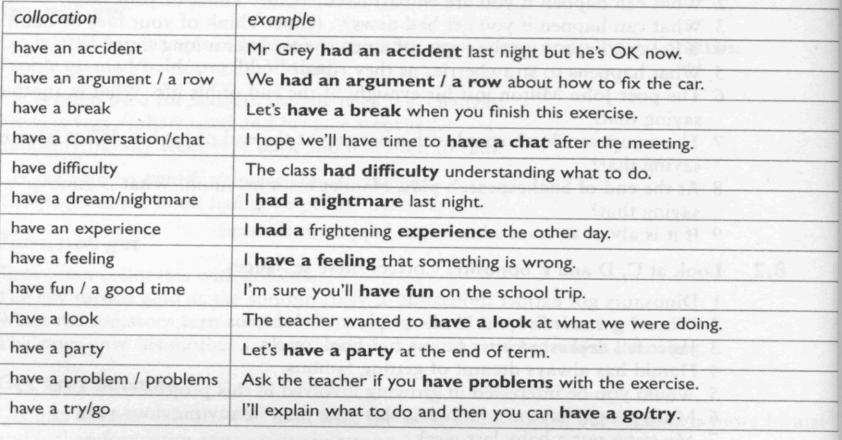Four compelling reasons why English language learners should learn collocations
Why is it important to study English collocations? This post will survey what exactly a collocation is, and offer four reasons why English language learners should learn collocations.
First of all, let’s deal with the question: What is a collocation?
WHAT IS A COLLOCATION?
One definition of what a collocation is can be found in the Oxford Collocations Dictionary: “Collocation is the way words combine in a language to produce natural-sounding speech and writing.”
This definition is not too fancy - it does the job.
A collocation is a combination of words which sound natural to native speakers.
Unfortunately, students of English have to go the extra mile to learn collocations. This is because it can sometimes be difficult to guess what the right combination of words is.
There are certain combinations which sound plain ‘wrong’ to native speakers of English. For example, the adjective powerful collocates with engine. However, "strong engine" is not a collocation.
Let’s now move on to four reasons why English language learners should learn collocations.
FOUR REASONS WHY ENGLISH LANGUAGE LEARNERS SHOULD LEARN COLLOCATIONS
Now that we've established what a collocation is, let's take a look at four reasons why learners of English should devote attention to learning collocations.
1. THERE ARE GOOD REASONS WHY ENGLISH LANGUAGE LEARNERS NEED TO ENCOUNTER WORDS IN AS MANY DIFFERENT CONTEXTS AS POSSIBLE
It should be common knowledge that there are very many words in the English language with multiple meanings.
One of the most common groups of words with different meanings is called homonyms. Homonyms are distinctive because they have the same spelling and pronunciation.
One example of a homonym is the word engaged. Engaged, when used as an adjective, can have the following meanings:
1. Promising that you intend to marry someone - My cousin has just got engaged to his childhood sweetheart
2. Be busy doing something - I'd like to come to the meeting on Friday but I'll be otherwise engaged
3. Involved in something - I’m engaged in a project that’s dominating my thoughts and taking up so much of my free time
4. If a telephone is engaged, someone is already using it - Every time I call her, the phone is engaged
It is relatively straightforward to memorise words which don’t have multiple meanings. However, words are often modified by their occurrence in a specific context, especially by their co-occurrence with other vocabulary items. As a starting point, learners can use the site word hippo to see how a word behaves in various contexts.
In the case of the word engaged, which has multiple meanings, the learner should pay attention to the way it collocates with surrounding words.
Clearly, GET + engaged + TO suggests that marriage is on the cards.
Conversely, engaged + IN assumes deep involvement in a project or activity.
Verbs such as get, and prepositions like to and in, convey just as much meaning as engaged. Therefore, it’s vital to devote sufficient attention to all of the words which surround engaged as well.
2. IT’S GOOD TO HAVE ALTERNATIVE WAYS OF SAYING SOMETHING
It would be very repetitive if a learner kept saying “very cold".
Why not say “bitterly cold” as an alternative?
Many English language learners tend to rely on adverbs such as very and really. Therefore, saying “bitterly cold” is simply more colourful and expressive.
English language learners with a lack of collocational knowledge often use the word big to refer to the size or growth of something. If they said “big increase” to refer to an increase which happens suddenly and is great in amount, it would be fully understandable but not entirely accurate. Instead of big increase, the collocation sharp increase would be a viable alternative.
3. IT’S OK - YOU CAN SOUND INFORMAL WHEN YOU SPEAK ENGLISH
It’s often the case that English language learners sound too formal when they speak English. For instance, they don’t use contractions and they may stress vowel sounds in prepositions instead of reducing them to schwa.
It’s the same situation when it comes to collocations. I sometimes feel that learners feel too ashamed to use them because they think that only native speakers should use collocations.
Here are some examples of overly formal and unnatural speech. I also offer some collocations which are more common in informal spoken English:
1.
FORMAL: I was very bored in that meeting
INFORMAL: I was BORED STIFF in that meeting (bored still = extremely bored)
2.
FORMAL: I will consider your offer and let you know
INFORMAL: I’ll HAVE A THINK about it and let you know
3.
FORMAL: Please call me when you arrive home
INFORMAL: GIVE ME A RING when you GET HOME (give me a ring = give me a call)
4. spoken ENGLISH consists OF many MULTI-WORD EXPRESSIONS, PARTICULARLY WITH GET, TAKE, HAVE, DO AND MAKE
It’s mind-boggling just how many collocations there are in English that contain the verbs get, make, have, do and make.
Have a look at this list of common collocations with have:

Source: see below
I could easily add hundreds more collocations with have to this list.
In essence, English language learners need to spend less time doing grammar exercises, and devote more time to studying collocations and creating lots of personalised sentences with them. In other words, true sentences about their lives, hobbies, past experiences and even opinions on certain matters.
Final THOUGHTS
There are so many reasons why English language learners should learn collocations.
Learning collocations is undoubtedly a vital piece of the jigsaw when it comes to achieving fluency in English.
Recognising and noting down new collocations is just the beginning for English language learners. After they meet a new collocation, I believe that there needs to be some consistent follow-up action in the form of a Word-Phrase Table in order to record newly-learned collocations.
Source for screenshot:
English Collocations in Use by McCarthy, Michael, O'Dell, Felicity, 5th (fifth) Edition (2005), Cambridge: Cambridge University Press



